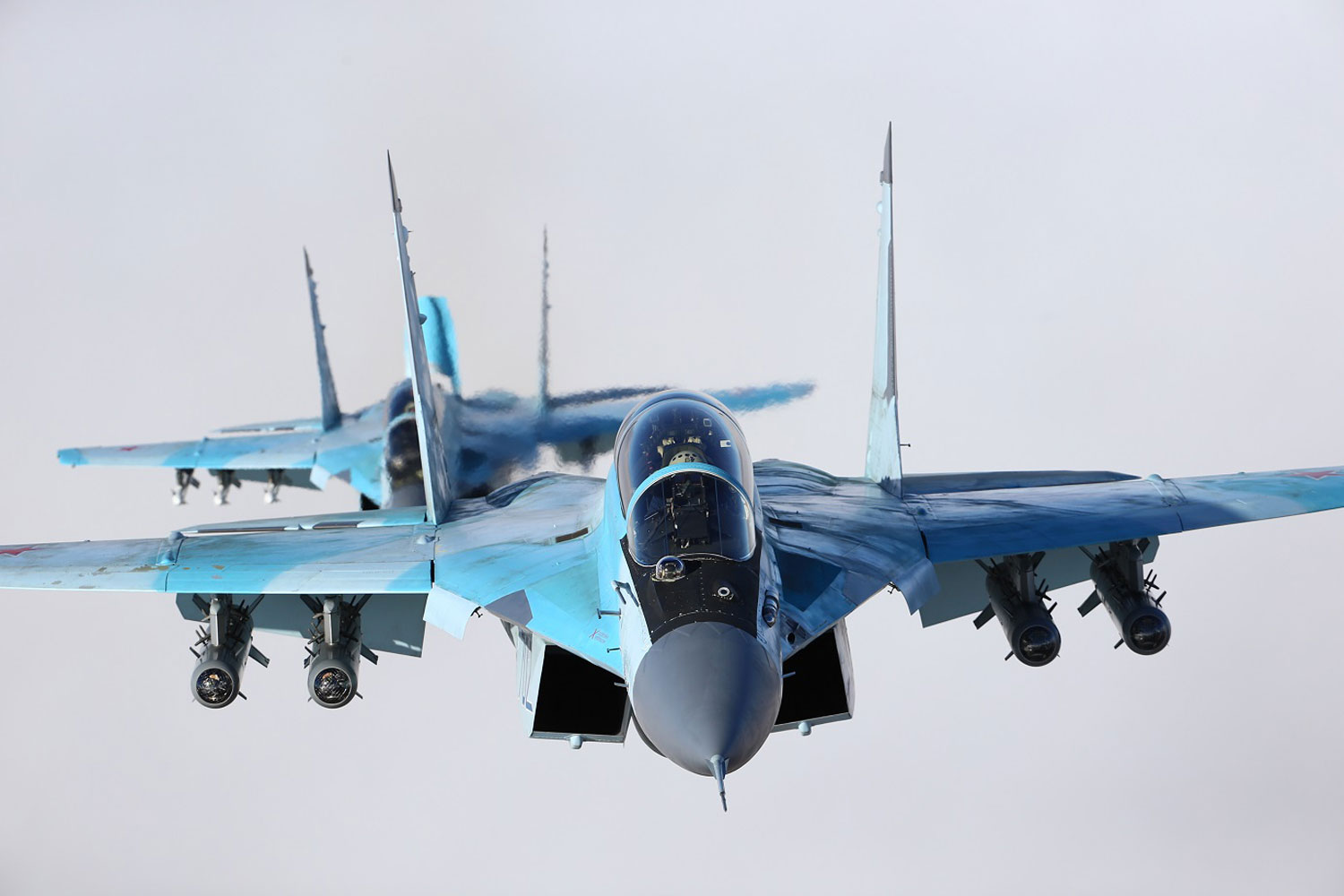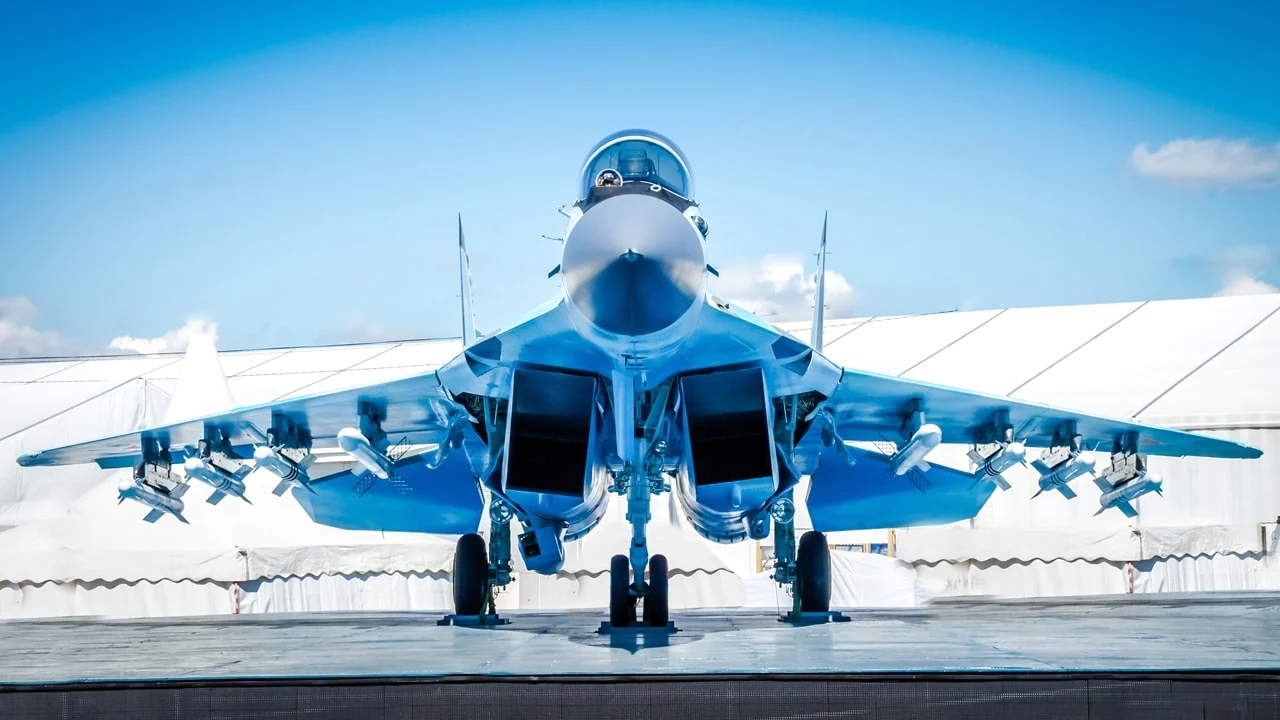Russia’s MiG-35 “Fulcrum Foxtrot” Test Prowess in Ukraine
The presence of MiG-35 "Fulcrum Foxtrot" in Ukraine suggests that United Aircraft Corporation (UAC) is possibly in the process of "preparing" the fourth-generation+++ fighter aircraft before initiating serial production. This preparation is anticipated before the MiG-35 joins the Russian Aerospace Forces as part of its fleet.
(DEFENCE SECURITY ASIA) — For the first time, the Russian military has reportedly deployed MiG-35 “Fulcrum Foxtrot” fighter aircraft for attack missions in Ukraine, potentially indicating that these previously “overlooked” fighters may soon join the Russian Air Force fleet.
The state news agency, RIA Novosti, quoted a senior official from the United Aircraft Corporation (UAC), Sergey Korotkov, stating that MiG-35 fighter aircraft have been involved in Russian military operations in Ukraine.
“Further test flights will be conducted before the Russian Ministry of Defense makes a final decision,” he said when asked about the commencement of serial production of the aircraft and its acquisition by the Russian Air Force.
He mentioned that the specifications of the MiG-35 fighter aircraft also meet the requirements of international customers.
The response from the UAC senior official somewhat suggests that the “presence” of MiG-35 fighter aircraft in Ukraine is more focused on conducting various flight tests and evaluating its weapon systems.

The UAC is likely in the process of “preparing” the fighter aircraft before initiating serial production and delivering them to the Russian Aerospace Forces.
The Russian Air Force is reported to currently possess six MiG-35 aircraft for testing and evaluation purposes.
The UAC is also attempting to market the MiG-35 to foreign countries, especially air forces that already use MiG-29 fighters, such as the Royal Malaysian Air Force (RMAF) and the Indian Air Force, but so far, Moscow’s efforts have not been successful.
Russian President Vladimir Putin had previously offered the MiG-35 to then-Prime Minister Tun Dr Mahathir Mohamad.
Recently, the CEO of the United Aircraft Production (UAC), Yuri Slyusar, stated that Russia’s fourth-generation+++ fighter, the MiG-35, will be mass-produced starting next year to meet the needs of the country’s air force.
Russia is concerned that in the event of a large-scale conflict with the West led by the United States, it may not have a sufficient supply of fighter aircraft, justifying its efforts to start serial production of the MiG-35.

The conflict between Russia and Ukraine, which resulted in the destruction various Russian fighter aircraft, has prompted the country’s air force to consider rebuilding its fleet with new and more capable fighter aircraft.
The urgent need within the country seems to have compelled Russia to launch the serial production of the MiG-35.
Previously, the future of the fighter aircraft seemed uncertain as no foreign country appeared interested in acquiring it, despite promotions by the Russian government.
Defense analysts in Russia state that the MiG-35 is the most easily adaptable aircraft in terms of incorporating the latest weapon system technologies due to its “open architecture” approach.
Not only is it easily adaptable to the latest technologies, but the MiG-35 fighter aircraft is also equipped with the high-powered Active Electronically Scanned Array (AESA) radar “ZHUK-AM,” similar to Western fighter aircraft.

“The faster the enemy aircraft is detected (using the latest radar), the faster it is neutralized,” according to Russian defense analysts.
They claim that the MiG-35 with the AESA radar Zhuk-AM can detect enemy aircraft at a range of 220 km, while for the F-22 fighter aircraft, it can be detected at a range of 80 km.
The maximum speed of the MiG-35 fighter aircraft is Mach 2.25, and it can fly at an altitude of 67,000 feet. It is powered by two Klimov RD-33K engines.
The MiG-35 can carry various modern guided bombs and missiles, as well as a 30mm cannon. It also features an Electronic Warfare Pod to enable it to counter enemy aircraft and their air defense systems. – DSA
To contact email: lulwabyadah@gmail.com


Comments are closed.